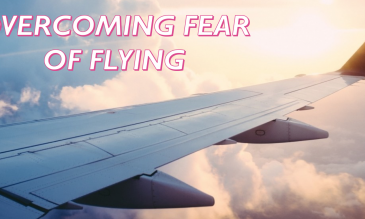What is EasyJet policy on pet acceptance?
Unfortunately, EasyJet does not accept animals. They explain that any problem with a pet that is traveling on any of their flights could prolong the turnaround time of a flight. This prohibition applies to either cabin baggage or luggage which is transported in the cargo hold of the aircraft. In the airline’s Terms and Conditions, talking exclusively about luggage transported, in the section of Items Unacceptable as Baggage, EasyJet states that passengers must not take in their luggage live animals. The airline will refuse to accept those.
In order to be more specific, live animals including pets, reptiles, insects or any other form of livestock, are not allowed on this airline’s flights nor in the cabin or in the hold, with the exception of Guide or Service Dogs, this on all easyJet flights.
Guide or Assistance Dogs
EasyJet will admit Guide or Assistance Dogs accompanying passengers who are vision impaired, blind, hearing impaired, deaf, or if they have a disability that leads to the need of the assistance provided by these kinds of dogs.
A Guide Dog is an animal trained in order to provide mobility help to persons with any of the problems mentioned in the last paragraph. To be transported as an Assistance or Guide Dog, a dog must:
- Be trained to go together with its owner and must know how to support people with incapacity.
- Be trained by a recognized training organization (an organization affiliated with Assistance Dogs International or International Guide Dog Federation).
- Be in possession of an authorized identity document issued by a recognized training organization endorsing that the assistance dog is a completely trained service pet or is under the regulations of a verified trainer.
- Wear an identifying jacket or harness to be provided by the handler, at all times while being in the airport terminal and while it is on board the aircraft.
- Be kept under the direction and control of the passenger at all times during the flight.
EasyJet will admit to transporting Assistance or Guide Dogs, together with food and containers, at no additional cost and in addition to the normal free baggage allowance, on the following routes:
- All the flights starting and finishing inside the European Union (except the UK), plus Switzerland and Norway.
- All the United Kingdom domestic flights, including Northern Ireland.
- All international flights between all United Kingdom airports and the European Union, Switzerland, and Norway, subject to the UK Pet Passport Scheme.
Please keep in mind that Assistance or Guide Dogs are not allowed on flights to and from Israel, Turkey, Kosovo, Montenegro, Egypt, or Morocco.
Booking
Passengers must inform EasyJet in advance if they need to travel with an Assistance or Guide Dog, during the reservation process, or by contacting the airline via the sales desk or customer service team a minimum of 48 hours prior to the passenger’s departure.
To guarantee that all required procedures are completed, travelers with Assistance or Guide Dogs are suggested to present themselves at the Bag Drop desk at least 120 minutes prior to the scheduled departure time of the flight.
Assistance or Guide Dogs will be accommodated at no charge on the floor of the aircraft and at the feet of the owner. The harness or jacket the pet has to use at all times must be tied to the handler’s seat belt during landing, take-off, in the course of turbulence, and when the “fasten seat belt” sign is lit up.
The acceptance for transportation of Assistance or Guide Dogs inside the passenger cabin is subject to the complete passenger’s responsibility for the mentioned animal, including the flights on the United Kingdom itineraries making sure that the Assistance or Guide Dog fulfills the conditions of the UK Pet Travel Scheme.
It is helpful to know that the airline will not accept legal responsibility for any Assistance or Guide Dog that is not properly documented when its owner presents it for transportation. This includes any liability due to injuries, delay, loss, sickness, or, in a worst-case scenario, death of the pet. The airline will not take responsibility for any costs incurred in the incident that the Guide Dog or Assistance Dog is refused entry into or pass through any state, territory, or country.

 En
En Es
Es Fr
Fr







